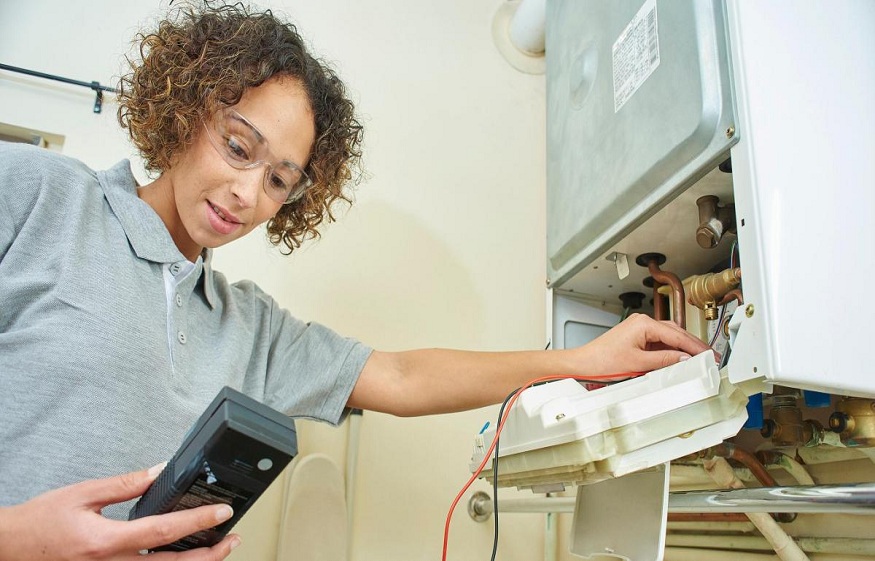With the onset of the pandemic, city dwellers increasingly began to think about life outside the city. Many have already moved from thinking to business and started building their own homes. It must be warm, otherwise you will have to forget about comfort and coziness.
1 Wall or floor
The boiler can be floor-standing or wall-mounted. Floor models take up more space. Most often it is equipment with an atmospheric burner, with a minimum of additional functions. Floor boilers are more expensive than wall-mounted ones, they are more difficult to install; in addition, you have to buy a pump, an expansion tank. In addition, most models have good power and are structurally simple.
Wall models are more compact than floor models. They represent a mini boiler room, in which all the equipment necessary for normal operation is already installed, including an expansion tank, a circulation pump and a safety group. For a floor boiler, all this will have to be purchased separately.
2 Number of circuits
Single-circuit models have only one heating circuit. Such boilers heat water from the heating system and supply it to radiators or underfloor heating. Double-circuit boilers are equipped with an additional circuit, designed for hot water supply. This is how all Kiturami boilers work. The equipment can both heat the house and provide it with hot water, which is enough for the operation of several water points. Hot water will be supplied, for example, to the bathroom and kitchen. This is more than enough for a country house.
3 Type of combustion chamber
Oxygen is needed to maintain combustion. Depending on the mode of its supply, two types of combustion chambers are distinguished. The first is an open combustion chamber with an atmospheric burner. It uses the air it takes directly from the room. The second is a closed combustion chamber with a turbocharged burner. Such a burner uses air from the street. This requires a special vent pipe or coaxial chimney.
4 Heat exchanger
An important structural element of the boiler, to which special attention should be paid when choosing. The heat exchanger is affected by coolant, flue gases, and in addition, condensation can form in the combustion chamber – this can create an aggressive environment, which requires special corrosion resistance . In addition, the heat exchanger must have good thermal conductivity: the more heat it transfers to the water in the heating system, the higher the efficiency of the boiler.
5 Power
The technical documentation for each boiler contains information about its heat output. Before choosing equipment, a competent thermal engineering calculation should be made. This is necessary to accurately determine the heat loss at home. Climatic conditions, the volume and area of all rooms, the number of doors and windows, wall materials, roofs should be taken into account.If you plan to use a hot water supply system, a separate calculation is made for it. In addition, the requirements of the gas supply organization are taken into account. The calculated heat demand will indicate the power required.
6 Ease of use
Boiler automation greatly simplifies the control of gas equipment. For example, a room control panel with a built-in temperature sensor allows the boiler to be operated in the operating mode depending on the room air temperature with an accuracy of one degree Celsius. First, it adjusts the operation of the heating system so that everyone in the house is comfortable.
When the set air temperature in the room is reached, the boiler switches off and goes into standby mode until the room temperature drops. And if the outside temperature changes during the day, the boiler will turn on less often during the day. All this will significantly reduce energy costs. Additional savings are provided by the “Timer” mode, with which you can set the boiler to work at certain intervals.
7 Security
Gaseous fuels are potentially hazardous. When using it, an effective security system is very important. It includes blocking in the event of an emergency, when the boiler is stopped in the event of a malfunction, in particular a gas leak inside the boiler, a power cut. In addition, the boiler must be equipped with sensors that monitor the presence of a flame, gas leaks, pressure and temperature in the heating system and the temperature of the hot water supply. They prevent an emergency by shutting down the boiler.

